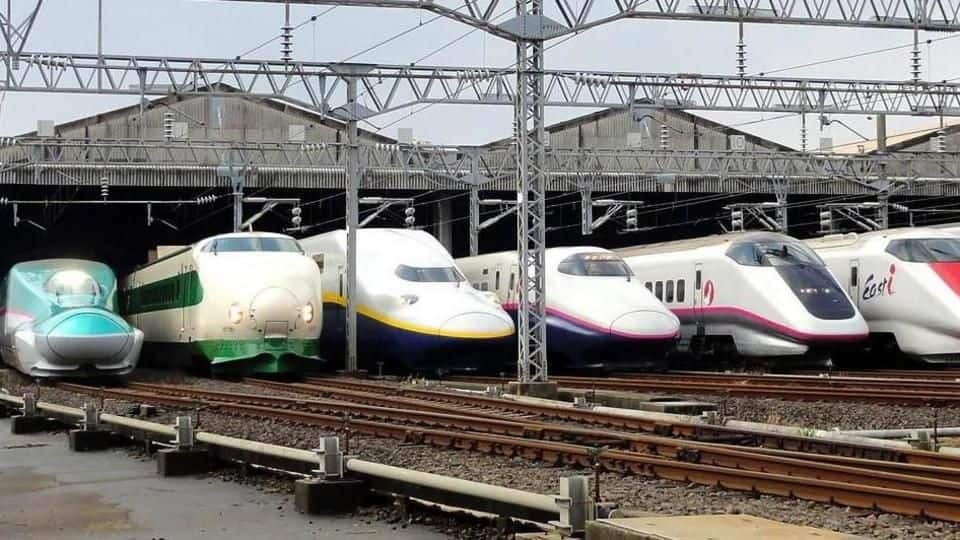
'Japan has upper hand in bullet train deals'
What's the story
One would assume that PM Narendra Modi's pet bullet train project would benefit India in terms of manufacturing and employment. This is especially because he has consistently been pushing for 'Make in India.' Well, it seems that's not to be. Reportedly, apart from funding most of the project, Japanese steel and engineering companies will supply 70% of the core components. Here's all about it.
About
What is the bullet train project?
The bullet train or Mumbai-Ahmedabad High Speed Rail (MAHSR) project is estimated to cost Rs. 1.1L crore. Japan will provide a soft loan of Rs. 88,000cr at 0.1% interest, to be repaid in 50 years. Further, with an average speed of 320kmph and maximum speed of 350kmph, travel time between Mumbai-Ahmedabad will be cut down to about 2 hours from the current 7 hours.
Agreement
What are the nitty-gritties of the project?
While signing the contract, Japanese had one condition: India would buy 30% equipment, including coaches and locomotives, from Japanese firms. The remaining 70-80% was to be manufactured in India as part of "Make in India" and "Transfer of Technology". Thus, Modi hoped to set up manufacturing facilities, generate employment and enter the Japanese technology market. But, are the Japanese getting cold feet now?
Current scenario
So, now what is the scenario?
Now, the Japanese have reservations on certain issues. They are reportedly concerned about the differences in Indian and Japanese work culture. Some Japanese companies have purportedly raised questions about efficiency of Indian companies and their ability to meet deadlines. However, the Japanese insist that they are more concerned with the issue of Indian companies' inexperience in dealing with high-speed railway systems.
Joint venture
Apparently, there will be only one joint venture
Presently, the only collaboration is between Japan's Kawasaki Heavy Industries and India's Bharat Heavy Electricals Ltd for carriage orders. Earlier, government tried to mediate between Japan's Nippon Steel and India's Jindal Steel and Power Ltd to launch a joint venture for manufacturing rails. But, Japanese backtracked after raising quality concerns. State-owned Steel Authority of India was also overlooked for the same reason.
Do you know?
But, what about transferring technology
But, what about technology transfer? The Japanese are seeking more bullet train corridors in India before transferring technology. However, Indian authorities probably won't announce any new projects until they arrive at the final cost and test the commercial feasibility of the Ahmedabad-Mumbai link.
Significance
What does this imply?
Indian firms will probably provide only the raw materials like cement and supply manpower for laying the assembly lines. This does not look good for PM Modi who faces the 2019 elections. He marketed this as an ambitious project that will generate jobs and give a boost to manufacturing. With these new reports, how will Modi appeal to the millions of unemployed Indians?